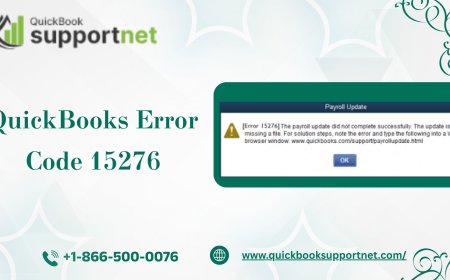Waste Management Feasibility Studies for UAE Municipalities

The United Arab Emirates (UAE) stands as a beacon of modern urban development in the Middle East, characterized by rapid urbanization, ambitious mega-projects, and a commitment to sustainability. However, with this growth comes an ever-increasing challenge: effective waste management. The UAE generates millions of tonnes of waste annually, much of it from households, commercial enterprises, and the booming construction sector. Municipalities across the Emirates face the complex task of managing this waste sustainably while aligning with national environmental goals.
A critical step toward achieving efficient waste management systems is the implementation of waste management feasibility studies. These studies provide a data-driven foundation for planning, budgeting, and executing waste handling solutions that meet both local needs and international sustainability standards. For municipalities across the UAE, investing in these studies ensures not only environmental compliance but also the optimization of resources and public health outcomes.
The Importance of Feasibility Study Consulting Services
In recent years, UAE municipalities have increasingly turned to feasibility study consulting services to evaluate and modernize their waste management strategies. These services offer expert analysis of existing waste streams, infrastructure capabilities, and projected population growth to develop practical and financially viable solutions. The value of professional consulting cannot be overstatedit allows local governments to avoid costly mistakes, streamline operations, and meet national targets like the UAE Vision 2031 and the National Waste Management Strategy.
Moreover, these services help municipalities explore innovative solutions such as waste-to-energy (WTE) technologies, enhanced recycling programs, and smart waste tracking systems. By leveraging in-depth technical, environmental, and financial analyses, feasibility consultants empower decision-makers with actionable insights that reflect both global best practices and local nuances.
UAE's Waste Management Landscape
To understand the importance of feasibility studies, it's essential to contextualize the waste management landscape in the UAE:
-
High Per Capita Waste Generation: The UAE ranks among the highest globally in terms of per capita waste production, estimated at 1.8 to 2.5 kg per person per day.
-
Construction & Demolition (C&D) Waste: A significant portion of municipal waste comes from the construction sector, contributing to landfill overflow and environmental degradation.
-
Limited Landfill Lifespan: Many landfills in the UAE are nearing capacity, prompting urgent attention to alternative waste processing methods.
-
Ambitious Sustainability Goals: The UAE aims to divert 75% of waste away from landfills by 2025, underlining the need for systematic, data-driven waste management frameworks.
Municipalities are at the frontline of addressing these challenges. Yet, without a robust feasibility assessment, even the most well-intended projects risk falling short of their goals.
Core Components of a Waste Management Feasibility Study
A comprehensive waste management feasibility study typically includes the following elements:
1. Waste Stream Analysis
Understanding the composition, volume, and seasonal variability of waste is foundational. Consultants analyze residential, commercial, and industrial waste streams to identify recyclable and recoverable materials.
2. Technical Viability
This includes evaluating current infrastructure such as transfer stations, collection fleets, sorting facilities, and landfill sites. Recommendations are made for upgrades or new technologies like anaerobic digesters or incinerators.
3. Economic Assessment
Feasibility studies involve cost-benefit analyses, life cycle costing, and return-on-investment projections. These financial models help municipalities budget realistically and attract private sector partnerships if needed.
4. Regulatory Compliance
Waste management solutions must align with federal and emirate-level regulations, including guidelines from the Ministry of Climate Change and Environment (MOCCAE).
5. Environmental Impact Analysis
Consultants assess how different waste treatment methods affect air quality, groundwater, and greenhouse gas emissions, thereby helping municipalities make environmentally responsible decisions.
6. Social Acceptance
Public engagement and education are crucial for long-term success. Feasibility studies often include surveys or focus groups to assess community willingness to participate in recycling or composting programs.
Benefits for UAE Municipalities
Municipalities in the UAE that conduct professional feasibility studies before implementing waste management projects stand to gain numerous advantages:
-
Improved Operational Efficiency: Streamlining collection routes and facility locations based on feasibility findings reduces fuel use and labor costs.
-
Enhanced Sustainability Outcomes: With accurate projections and environmental assessments, municipalities can implement solutions that significantly reduce landfill dependency.
-
Informed Decision-Making: Data-driven insights prevent under- or over-investment in technologies, ensuring public funds are used efficiently.
-
Greater Funding Opportunities: A solid feasibility report is often required to access national sustainability grants or attract foreign investment in green infrastructure.
-
Community Trust: Transparency and evidence-based planning increase public confidence in local government initiatives.
Regional Success Stories
Across the UAE, several municipalities have already reaped the benefits of engaging feasibility study consulting services:
-
Abu Dhabi: The capital city has conducted extensive waste management studies to support its zero-waste-to-landfill goal. This has led to the development of one of the regions largest waste-to-energy plants.
-
Sharjah: Through detailed feasibility analysis, Sharjah has achieved one of the highest waste diversion rates in the country, with more than 75% of its waste now processed or recycled.
-
Dubai: Dubai Municipality has used feasibility studies to plan its Integrated Waste Management Centre in Warsan, which will be one of the largest in the world upon completion.
These case studies underscore the transformative potential of comprehensive planning backed by expert consultancy.
Emerging Technologies and Feasibility
One of the primary roles of feasibility consultants is to evaluate new and emerging technologies. The waste management sector is evolving rapidly, and municipalities must consider innovations such as:
-
Smart Bins and IoT: Sensors that report real-time waste levels can optimize collection schedules.
-
AI-Powered Sorting: Advanced sorting systems use machine learning to increase recycling efficiency.
-
Plasma Gasification: A high-tech solution for converting waste to syngas with minimal emissions.
By including these technologies in a feasibility assessment, municipalities can future-proof their investments and remain aligned with global trends.
The Role of Public-Private Partnerships
Feasibility studies often identify opportunities for public-private partnerships (PPPs), which are increasingly crucial in executing large-scale infrastructure projects. Whether through build-operate-transfer models or long-term service contracts, municipalities can leverage private sector expertise and financing.
Consultants who specialize in feasibility study consulting services also bring experience in structuring these partnerships, ensuring risk-sharing and performance accountability. This is particularly valuable in the UAE, where fast project turnaround times and high service expectations are the norm.
As the UAE continues to position itself as a global leader in sustainability and smart city development, effective waste management remains a non-negotiable priority. Municipalities play a critical role in turning vision into action, but success depends on meticulous planning and informed decision-making.
Engaging in comprehensive waste management feasibility studies allows municipalities to identify viable solutions tailored to local challenges and opportunities. Partnering with specialized feasibility study consulting services ensures that projects are not only technically and financially sound but also environmentally sustainable and socially acceptable.
For UAE municipalities seeking to meet ambitious diversion and sustainability goals, feasibility studies are not a luxurythey are an essential foundation for progress. As the sector evolves, those who plan wisely today will lead the transition to a cleaner, greener tomorrow.
You May Like:

































